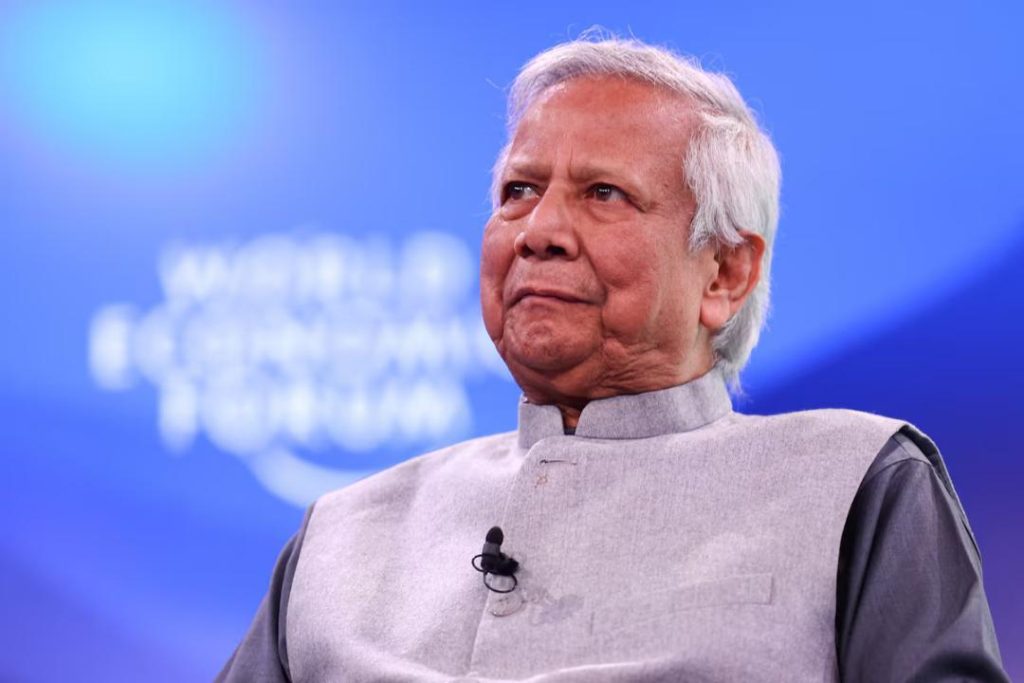
Yunus needs to remain in office for peaceful transition: Taiyeb
Bangladesh is currently undergoing a period of political uncertainty, with the country’s interim government chief adviser, Muhammad Yunus, threatening to resign if political parties do not support him. This development has raised concerns about the potential for instability and unrest in the country. However, Faiz Ahmad Taiyeb, a special adviser to Yunus, has urged the chief adviser to remain in office to ensure a peaceful power transition.
In a recent statement, Taiyeb emphasized the importance of Yunus staying in office, stating that “For the sake of Bangladesh and a peaceful democratic transition, Professor Yunus needs to remain in office.” This statement comes amid growing tensions between the interim government and political parties, with some parties refusing to recognize the government’s legitimacy.
Yunus, a renowned economist and Nobel laureate, was appointed as the chief adviser of the interim government in January 2023. He was tasked with overseeing the country’s transition to a democratic government and ensuring a peaceful transfer of power. However, his authority has been challenged by various political parties, which have accused him of being biased and working to undermine their interests.
The latest development in this saga came when Yunus announced that he would resign if political parties did not support him. This move sparked concerns about the potential for chaos and instability in the country, with many fearing that a power vacuum could lead to unrest and violence.
Taiyeb’s statement urging Yunus to remain in office is a significant development in this situation. As a special adviser to Yunus, Taiyeb has a unique perspective on the situation and is well-positioned to understand the implications of Yunus’s resignation.
Taiyeb’s comments are also significant because they highlight the importance of stability and continuity in Bangladesh’s political transition. The country has a history of tumultuous politics, with frequent changes in government and military coups. In recent years, Bangladesh has made significant progress in democratizing its political system, but it still faces many challenges.
One of the most significant challenges facing Bangladesh is the need to ensure a peaceful transfer of power. The country’s political parties have a history of violence and intimidation, and many have accused each other of being involved in political assassinations and other forms of violence.
Yunus’s resignation could exacerbate these tensions, leading to a power vacuum that could be exploited by extremist groups and other anti-democratic forces. By urging Yunus to remain in office, Taiyeb is emphasizing the importance of stability and continuity in Bangladesh’s political transition.
Taiyeb’s statement also highlights the importance of dialogue and cooperation in resolving the crisis. The country’s political parties have been at loggerheads for years, with many accusing each other of being responsible for the country’s political problems.
However, Taiyeb’s comments suggest that there is still an opportunity for dialogue and cooperation. He emphasized the importance of working together to ensure a peaceful transition, stating that “For the sake of Bangladesh and a peaceful democratic transition, Professor Yunus needs to remain in office.”
In conclusion, Faiz Ahmad Taiyeb’s statement urging Yunus to remain in office is a significant development in Bangladesh’s political crisis. As a special adviser to Yunus, Taiyeb has a unique perspective on the situation and is well-positioned to understand the implications of Yunus’s resignation.
Taiyeb’s comments highlight the importance of stability and continuity in Bangladesh’s political transition, as well as the need for dialogue and cooperation in resolving the crisis. By urging Yunus to remain in office, Taiyeb is emphasizing the importance of ensuring a peaceful power transition and avoiding a power vacuum that could be exploited by extremist groups and other anti-democratic forces.



